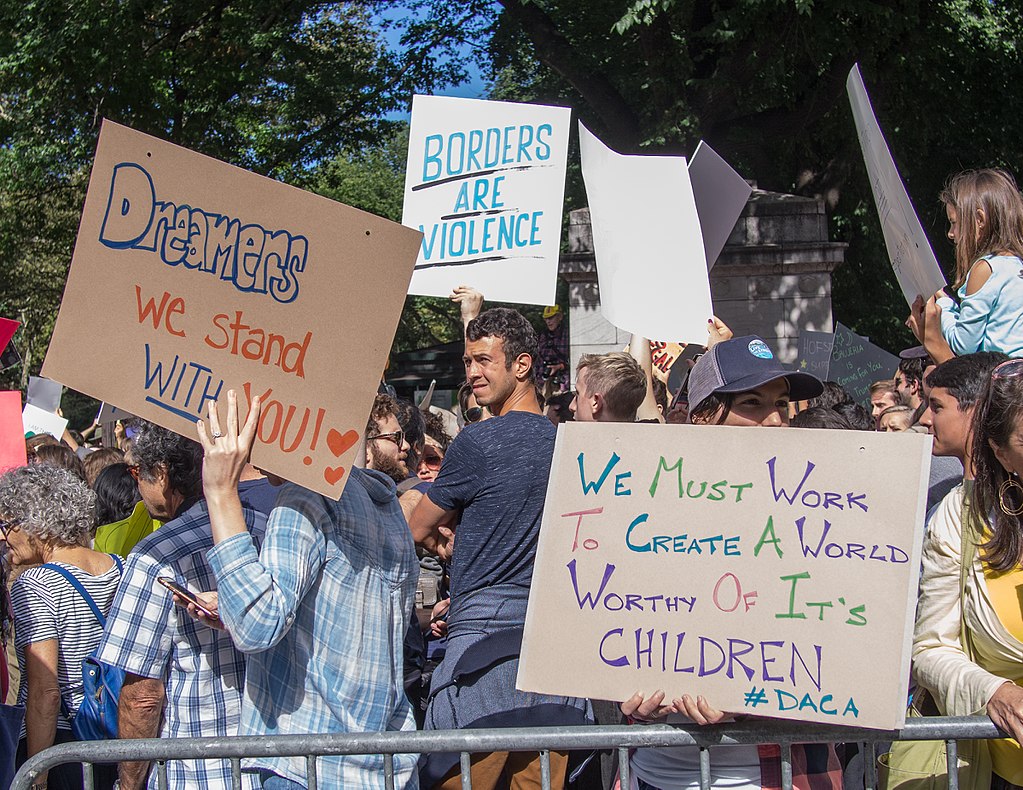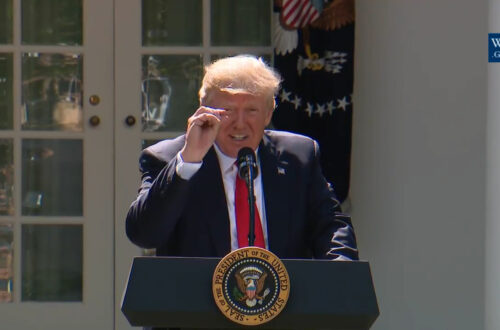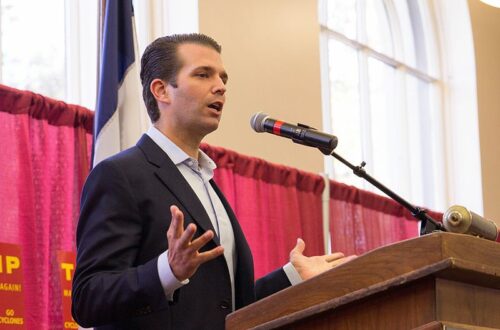The Senate’s effort to reach an immigration deal ended in failure on February 15 as four immigration bills were put to a vote on the floor. None of them passed.
This leaves no permanent fix for the Deferred Action for Childhood Arrivals (DACA) program, which the Trump administration said would expire on March 5. Due to a seriesof federal injunctions possible deportations have been halted for now.
The plan that seemed most likely to pass was a bipartisan bill that, among other provisions, would have allowed Dreamers, or immigrants who entered the country as children, to apply for legal status and appropriated $25 billion for building border security structures.
The bill was presented by Sen. Susan Collins, R-Maine, and the bipartisan “Common Sense” Caucus. However, after Trump issued a veto threat, the bill failed to reach the 60 votes it needed to advance.
Another bill by Sens. Chris Coons, D-Del., and John McCain, R-Ariz., received support from nearly all Democrats and faced large opposition from Republicans, failed by 52 to 47 margin.
The Coons-McCain bill was similar to the bipartisan bill in that it provided similar paths to legal status and made some plans for border security. It did not specifically appropriate funds for a border wall, though, an item of strong importance for many Republican senators.
Another bill sponsored by Sen. Chuck Grassley, R-Iowa, would have provided both the citizenship element of the other two bills and funding for Trump’s border wall while eliminating the diversity visa lottery program. Following substantial opposition from Democrats as well as several Republicans, it failed 39-to-60.
This bill reflects Trump’s ideas about immigration, but as the vote margin indicates, it did not reflect the Senate’s ideas about immigration. The cuts to legal immigration made by the elimination of the lottery program failed to gain support.
Sen. Pat Toomey, R-Pa., presented an amendment that was largely unrelated to DACA. Instead, it planned to withhold federal funding from sanctuary cities as punishment for them not enforcing federal immigration policies. The amendment failed 54-to-45, mostly due to Democratic opposition.
With the citizenship and potential deportation of the nearly 700,000 people under DACA’s protection hanging in the balance, there has yet to be a solution.
The issue in reaching an agreement does not appear to be with the Dreamers themselves though. Each of the bills presented in the Senate would have allowed DACA recipients (among others) to apply for legal citizenship. While the border wall is a matter of significance, border control measures were included in each of the bills as well.
The bipartisan “Common Sense” bill proves some Democrats are even willing to vote for funding for the border wall in order to make gains in other areas related to immigration.
Rather, the disagreement between the White House and Senate immigration plans is over the who gets the final word.
The plan most closely matching Trump’s immigration ideas failed by the widest margin. The bipartisan bill, however, came under fire from the Department of Homeland Security for going against the president’s immigration plans. Even if it had reached the 60 necessary votes, it would have likely been vetoed by President Trump.
Despite the government shutdown and multiple proposed plans, the Senate has been unable to advance the immigration legislation needed to put a permanent solution in place.





